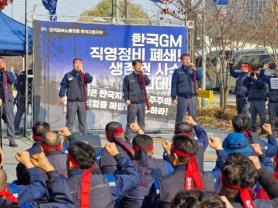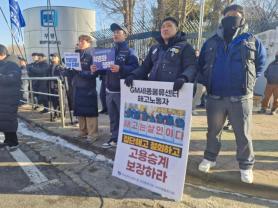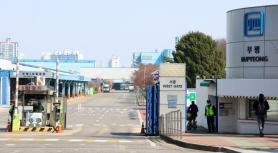![[Photo by Yonhap]](https://image.ajunews.com/content/image/2025/09/23/20250923130808826472.jpg)
SEOUL, September 23 (AJP) - GM Korea is grappling with significant financial challenges stemming from steep U.S. tariffs and a struggling domestic market.
The company, led by President Hector Villarreal, is facing criticism for its passive business strategy and a lack of proactive measures to secure its long-term future in the country.
The most immediate threat to GM Korea's viability is a 25 percent U.S. import tariff imposed in April. Industry estimates suggest the company incurred approximately $750 million in tariff costs in the second quarter alone, representing nearly 50 percent of its total $1.1 billion tariff expenses.
This financial burden is immense, amounting to roughly 55 percent of GM Korea’s entire operating profit from the previous year, which was reported at $1.36 billion.
GM Korea's business model is heavily skewed toward exports, a strategy that has made it particularly vulnerable to the recent trade tensions. Of the nearly 500,000 vehicles sold annually, about 95 percent are exported.
Last year, only 24,824 vehicles were sold in the domestic South Korean market, highlighting the company's limited local presence and reliance on its role as a manufacturing base for global supply chains.
Industry observers attribute the company's current predicament to a "passive" market strategy and a failure to adapt to a changing global landscape. An insider noted that while GM's operations in other countries like Mexico and China have found profitable niches, GM Korea has failed to secure its own competitive edge for the future.
Against this backdrop, GM Korea is actively pursuing the sale of its assets. In May, the company announced plans to sell nine service centers and land at its Bupyeong plant. President Villarreal defended the move, stating it is "crucial for sustainability" by maximizing the value of idle assets and rationalizing unprofitable service centers.
These asset sales have fueled speculation that GM Korea may be preparing to exit the Korean market. The company received $800 million in public funds in 2018 after closing its Gunsan plant, with a commitment to maintain its operations for 10 years.
The Bupyeong plant land, valued at approximately $620 million, is a prime location that could be repurposed for residential development. An auto industry source warned that if GM were to profit from such a real estate deal and then leave, the city of Incheon could face economic devastation similar to what Gunsan experienced.
The source added that the sale of service centers and a lack of investment in future technologies like electric vehicle (EV) production suggest the company has no intention of boosting its domestic sales or future-proofing its operations in South Korea.
* This article, published by Aju Business Daily, was translated by AI and edited by AJP.
Copyright ⓒ Aju Press All rights reserved.




